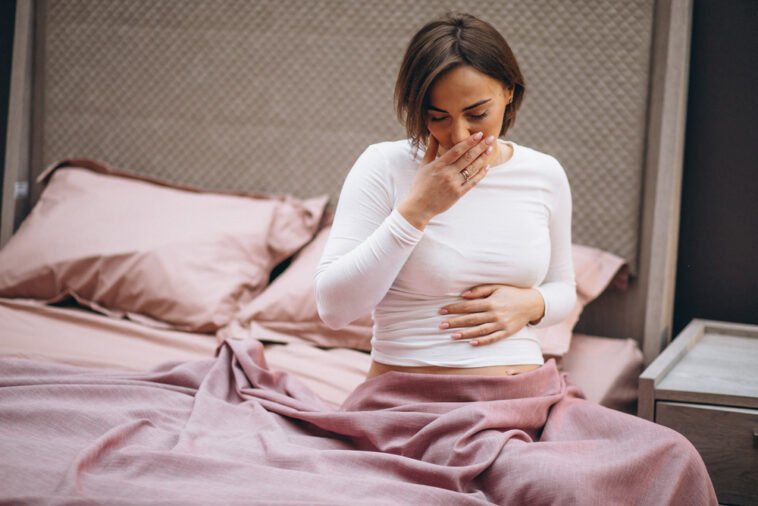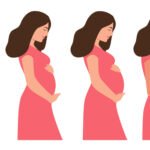Congratulations: you’re about to become a mom! Becoming a parent is an exciting and rewarding experience, but it can also be a source of shock and many questions. This is to be expected, and we hope this guide will help you through all the stages of pregnancy. In the first trimester of pregnancy, your body grows and changes, and so does your baby’s body. Here’s what you need to know as you embark on this amazing journey with your baby.
Your body will soon experience significant changes as it prepares to create a new life.
You may experience symptoms such as nausea or fatigue, or, conversely, an increase in energy levels! Listen to your body and adjust your routine as needed. All women are different, and the same can be said for every pregnancy.
Early signs and symptoms of pregnancy
The earliest sign of pregnancy is delayed menstruation in women with regular monthly cycles. Sometimes implantation bleeding can occur. It is very similar to light menstrual bleeding or oozing. This is completely normal, but you should consult your doctor if you have any bleeding during pregnancy.
In early pregnancy, you may also experience some of the following symptoms, such as fatigue, nausea, or rapid urination.
Read more on 9 Early pregnancy symptoms | The most important symptoms
Common symptoms
Hormonal changes in the first weeks of pregnancy affect your whole body. Every pregnancy is different, but in your first trimester you may experience some of these symptoms:
- Painful breast sensitivity
- Mood swings
- Nausea or vomiting (morning sickness)
- frequent urination
- weight gain or loss
- severe fatigue
- headaches
- heartburn
- leg cramps
- lumbar and pelvic pain
- craving for certain foods
- An aversion to certain foods
- constipation
Self-help
Symptoms in early pregnancy can at least cause discomfort. In order to alleviate your condition a little, try to follow the tips presented here after consulting your doctor in advance. Remember that you should be guided in all cases by your preferences and the options available to you.
- For nausea or vomiting, try taking ginger, chamomile, or vitamin B6 and/or see an acupuncturist.
- For cramps, try taking magnesium or calcium.
- For constipation, if dietary changes suggested by your doctor are not working, you can use wheat bran or other fiber supplements to relieve your condition.
Healthy foods and regular exercise are important at all stages of pregnancy. Stay active daily for as long as you feel comfortable doing certain activities. The more active you are during your pregnancy, the easier it will be for you to adapt to your body’s changes. Make sure you eat a nutritious diet for your growing body and your baby’s growing body. Make sure you get enough energy, protein, vitamins, and minerals from a variety of healthy foods, including vegetables, meat, beans, nuts, pasteurized dairy products, and fruit.
As your baby grows
This period is the most important for your baby’s development. In the first trimester, your baby’s internal systems and body begin to form. Some of the organs and body parts that are forming early include the following:
- Brain and spine
- Inner ear
- Heart tissue
- Genital
- Hand nails
- Liver
- Eyelids
- Pancreas
- Kidneys
- The cartilage of hands, feet, and limbs in general
- Muscles of the mouth, eyes, and nose
- Webbed fingers and toes
- Lungs
Fetal development can vary widely for a number of reasons. Still, in the first trimester, your baby will grow from about 0.64 cm at the end of the first month (smaller than a grain of rice) to about 10 cm by the end of 12 weeks and will weigh about 28 g [Cleveland Clinic data]. Contact the Department of Health for information regarding your country.
When should I see a doctor?
You should make at least one appointment during the first trimester of your pregnancy, and it’s best to do it as early as possible. For recommendations that apply in your country, contact the Ministry of Health or your doctor.
What to look out for
All women experience pregnancy differently, but you should talk to your doctor if you have any of the following conditions:
- Severe cramps
- A temperature of more than 38°C (100°F)
- Vaginal discharge with an unpleasant odor
- Painful urination
- Vaginal bleeding
- Severe vomiting






